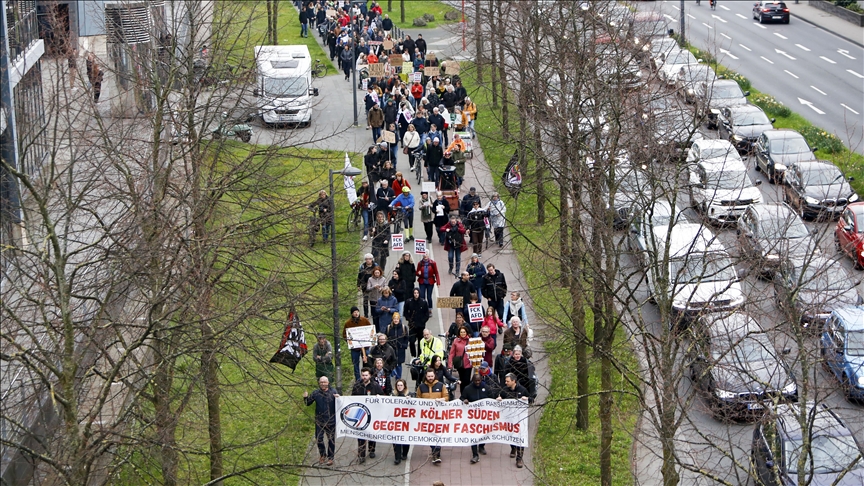Who Lost U.S.?
The Turkish-American crack, which has thoroughly deepened with the resignation of US Ambassador Eric Edelman, requires our discussing a similar problem on the Turkish front as well: Who lost America? Unfortunately, we don’t have many in our country who come closer for such inner self-evaluation. On the contrary, some circles are “proud” of throwing an Allied state’s ambassador into the sea during the Canakkale (Gallipoli) Victory commemoration! There are people who were pleased with the departure from Ankara of the diplomat, who is of Jewish origin, as much as they are with”Fascist-Nazi” Hitler, whose books have become so popular in Turkey recently.
I am not going to open a discussion on whether or not Edelman was doing a good job in Ankara. First and foremost, this would be unsuitable for Turkish hospitality. As a matter of fact, that should be of interest to Washington, more than us. And as far as I know, his bosses are pretty pleased with him. I can say even now that his resignation is not a demotion, but the beginning of an elevation to higher heights, in either the private or public sector. I can also inform you that Edelman made a one-day trip to Washington last week to negotiate with the Pentagon over the position that will be vacated by Deputy Secretary of Defense Paul Wolfowitz.
I don’t intend to make speculations about Edelman’s future. What I really would like to draw attention to is how one should interpret his resignation in terms of Turkish-American relations. To me, this development is one of the most dramatic moments of Turkey’s downward trend from the list of US “friends.” Despite many big crises, it is the first time in the history of the Turkish Republic that a US ambassador has resigned from office like this. We should examine very well the things that made the US change its horse in Turkey, while crossing a river in the Middle East and the fresh wounds that would be opened in our image in Washington, as a result of this resignation.
US official mouths say Edelman’s resignation is not related to his statement (considered distorted) about Turkish President Ahmet Necdet Sezer’s planned visit to Syria. Yes, Edelman’s resignation bid might have begun before this discussion; however, my sources close to the ambassador say the decision is a consequence of an accumulation. The most common assessment is that “He was put in a position of not being able to operate in Turkey and so was left with no other choice.” We managed (!) to send away a very influential diplomat, who has a personal friendship with Vice President Dick Cheney, by breaking his heart instead of benefiting from him in making Turkey’s voice heard in Washington.
Okay then, who are those who made Edelman unable to work in Turkey, that is, in other words lost America even more in his personality? Our guys are insolvent in determining what’s going on, let alone answering this question. Americans are concerned about anti-Americanism in Turkey, and we say, “There is no such thing, public opinion polls lie.” Americans talk about problems in private negotiations, we still tell tales of “good relations.” A group of deputies from various parties recently delivered such messages at the places they visited in Washington. Of course, their counterparts were not satisfied.
Although there is not much response coming from Turkey on the question, “Who lost America?” you can be sure that the matter is being discussed in Washington passionately. If one looks at articles published in influential journals on the rigth spectrum, such as Wall Street Journal, the Washington Times and the Middle East Quarterly, the Turkish media and the Justice and Development Party (AKP) are at the top of the “losers” list. What attracts my attention is that the military, which was reproached after the motion incident as follows: “Our traditional ally disappointed us,” is being relatively less targeted. It even comes to my mind as if the neo-con circles in particular are going back to the period of “My loyal darling is the Turkish Army…”
In this context, the meeting that will be held at the American Enterprise Institute (AEI), known for its closeness to the neo-Cons, carries vital importance. I hope AKP Deputy Chairman Murat Mercan comes to the meeting well equipped against the heavy artillery fire of Richard Perle, Robert Pollock, and Michael Rubin. I think the neo-Cons have lost most of their hopes in the AKP government. It is not going to be easy for AKP to clean its “Islamist” image within these circles; however, perhaps, if it can remove the concerns about rapprochement with Syria, Iran and Russia, that might at least stop the scope and scale of the storm.
Do not say, “Who do neo-Cons think they are!” Neo-Cons are one of the leading political groups that have established Washington’s connections with Turkey for many years. Turkish governments that cannot get along well with them usually do not thrive. Moreover, at the moment, they are enjoying their most influential period ever in US foreign policy. Despite their big mistakes in Iraq, President George W. Bush, completely ignoring the reactions of the international community, is sending two major neo-Cons (Paul Wolfowitz and John Bolton) to take up key positions in the World Bank and the United Nations, which are among the most prominent institutions in the world. In other words, the path that goes to the heart of the White House passes through the neo-Cons. If there are people in Turkey who would like to gain US friendship again, I just wanted to let them know this…



